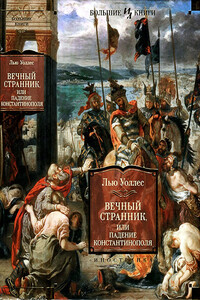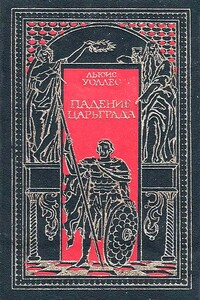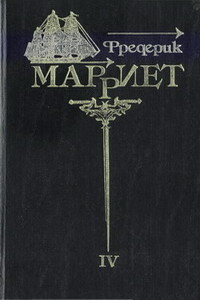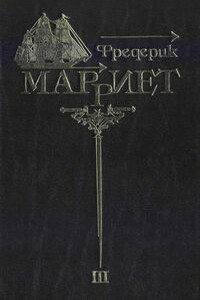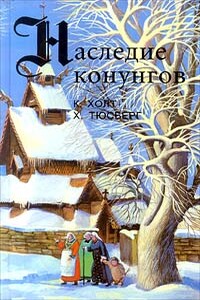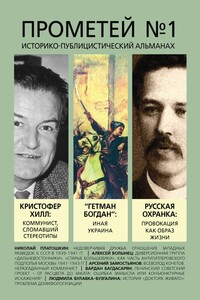| И с этого времени свет не оставляет меня; потому я знаю, что он являет собой видимое присутствие >Ду>ха. |
| In the morning I started to the world by the way I had come. | Наутро я направил свои стопы в мир той дорогой, по которой и пришел сюда. |
| In a cleft of the mountain I found a stone of vast worth, which I sold in Hurdwar. | В расщелине горы я нашел камень изрядной ценности, который я продал в Хурдваре. |
| By Lahore, and Cabool, and Yezd, I came to Ispahan. | Через Лахор, Кабул и Джидду я пришел в Исфахан. |
| There I bought the camel, and thence was led to Bagdad, not waiting for caravans. | Там купил верблюда и таким образом добрался до Багдада, не дожидаясь караванов. |
| Alone I traveled, fearless, for the Spirit was with me, and is with me yet. | Я путешествовал в одиночку, не испытывая страха, потому что Дух был со мной, как и сейчас. |
| What glory is ours, O brethren! | Какое же счастье обрели мы, о братья! |
| We are to see the Redeemer- to speak to him- to worship him! | Нам предстоит узреть Спасителя - говорить с Ним - поклониться Ему! |
| I am done." | Я сказал! |
| Chapter 5 | Глава 5 История египтянина ДОБРЫЕ ДЕЛА |
| The vivacious Greek broke forth in expressions of joy and congratulations; after which the Egyptian said, with characteristic gravity: | Более эмоциональный грек поспешил выразить индусу свою радость и поздравления; после чего египтянин произнес с характерной для него степенностью: |
| "I salute you, my brother. | - Я преклоняюсь перед тобой, брат мой. |
| You have suffered much, and I rejoice in your triumph. | Ты много претерпел, и тем больше я радуюсь твоему торжеству. |
| If you are both pleased to hear me, I will now tell you who I am, and how I came to be called. | Если вы оба будете добры выслушать меня, то я поведаю вам, кто я такой и как я пришел к тому, чтобы стать призванным. |
| Wait for me a moment." | Подождите меня, пожалуйста, одну минуту. |
| He went out and tended the camels; coming back, he resumed his seat. | Он вышел из шатра и добавил корма своему верблюду; возвратясь, египтянин продолжил свой рассказ. |
| "Your words, brethren, were of the Spirit," he said, in commencement; "and the Spirit gives me to understand them. | - Ваши слова, братья, повествовали о Духе, -сосредоточась, начал он, - и Дух дал мне понять их. |
| You each spoke particularly of your countries; in that there was a great object, which I will explain; but to make the interpretation complete, let me first speak of myself and my people. | Каждый из вас, в частности, рассказывал о своих странах, и это очень важно, почему - я объясню; но, чтобы вы могли полностью понять меня, позвольте мне сначала сказать несколько слов о моей стране. |
| I am Balthasar the Egyptian." | Я Балтазар, египтянин. |
| The last words were spoken quietly, but with so much dignity that both listeners bowed to the speaker. | Последние слова рассказчик произнес негромко, но с таким достоинством, что оба слушателя почтительно склонились перед ним. |
| "There are many distinctions I might claim for my race," he continued; "but I will content myself with one. | - Я мог бы назвать многие отличительные особенности моего народа, - продолжал он, - но я упомяну только одну. |
| History began with us. | История начинается с нас. |
| We were the first to perpetuate events by records kept. | Мы первыми стали заносить происходящие события на скрижали истории. |
| So we have no traditions; and instead of poetry, we offer you certainty. | У нас не было традиций, и поэтому поэзии мы предпочли достоверность. |
| On the fa?ades of palaces and temples, on obelisks, on the inner walls of tombs, we wrote the names of our kings, and what they did; and to the delicate papyri we intrusted the wisdom of our philosophers and the secrets of our religion- all the secrets but one, whereof I will presently speak. | На фасадах дворцов и храмов, на обелисках, на внутренних стенах гробниц мы записали имена наших царей и их деяния; а изящным папирусам мы доверили мудрость наших философов и тайны нашей религии - все секреты, кроме одного, о котором я сейчас вам рассказываю. |
| Older than the V?das of Para-Brahm or the Up-Angas of Vyasa, O Melchior; older than the songs of Homer or the metaphysics of Plato, O my Gaspar; older than the sacred books or kings of the people of China, or those of Siddartha, son of the beautiful Maya; older than the Genesis of Mosche the Hebrew- oldest of human records are the writings of Menes, our first king." |
